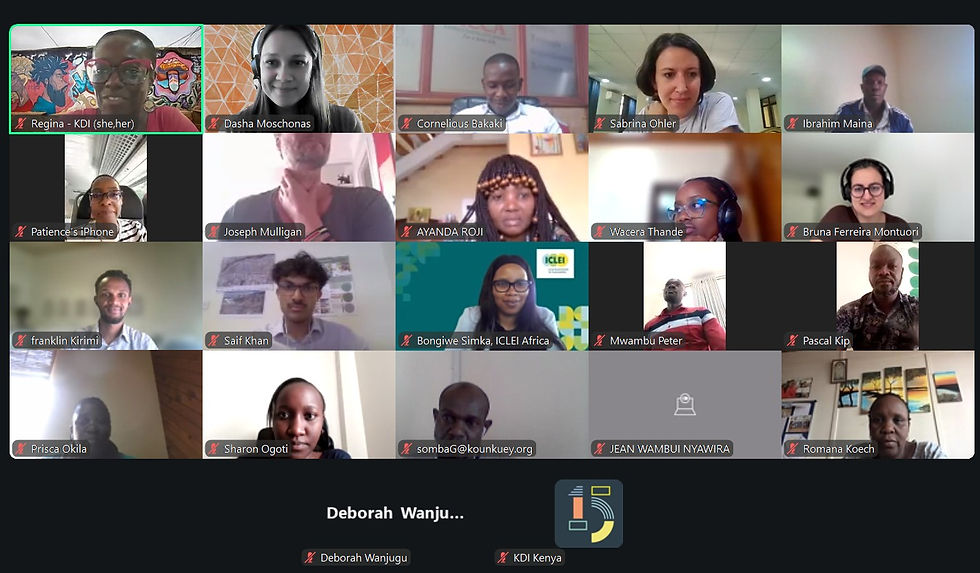Co-design for human centered NBS in Mukuru informal settlement, Nairobi
- Apr 27, 2022
- 1 min read
By Barbara Mukiri
Co-design entails actively involving stakeholders in the process of designing. It mainly emphasizes on designing with and not designing for.
The NBS concepts strongly advocate for the inclusion of a range of actors and stakeholders in the decision making; this is so as to enable designs that incorporate community’s needs, demands and priorities in the restoration of the modified ecosystem.
In the past 3 months we, KDI, were able to apply a co-design process in Mukuru under R-U-NBS project through a number of workshops. The workshops had various activity objectives as listed below;
Generating understanding with wider community of Mukuru on Nature based Solutions and narrowing down specific NBS in regards to relevance to Mukuru context and waste water challenges highlighted.
Identifying waste water related challenges with the community.
Developing scenario planning and visioning with the community.
Presentation of NBS design examples, those suitable to Mukuru and discussing with participants on implications of different NBS /functions/maintenance
Prioritization of the NBS using matrix and later conducting voting for community to select most preferred solution so as to inform order of preference during design.
Through these co-design objectives which generated various activities we achieved inclusive participation in design development, social learning and raising awareness. Each workshop acted as a “workspace” where KDI facilitators/ experts offered guidance and enabled discussions with the community members rather than lecturing them. In all the workshops, we had community members actively participating and we noted a very positive reaction towards the project by the community as they felt fully engaged in every stage.

Indeed co-design is a powerful approach to a human centered NBS.



Comments